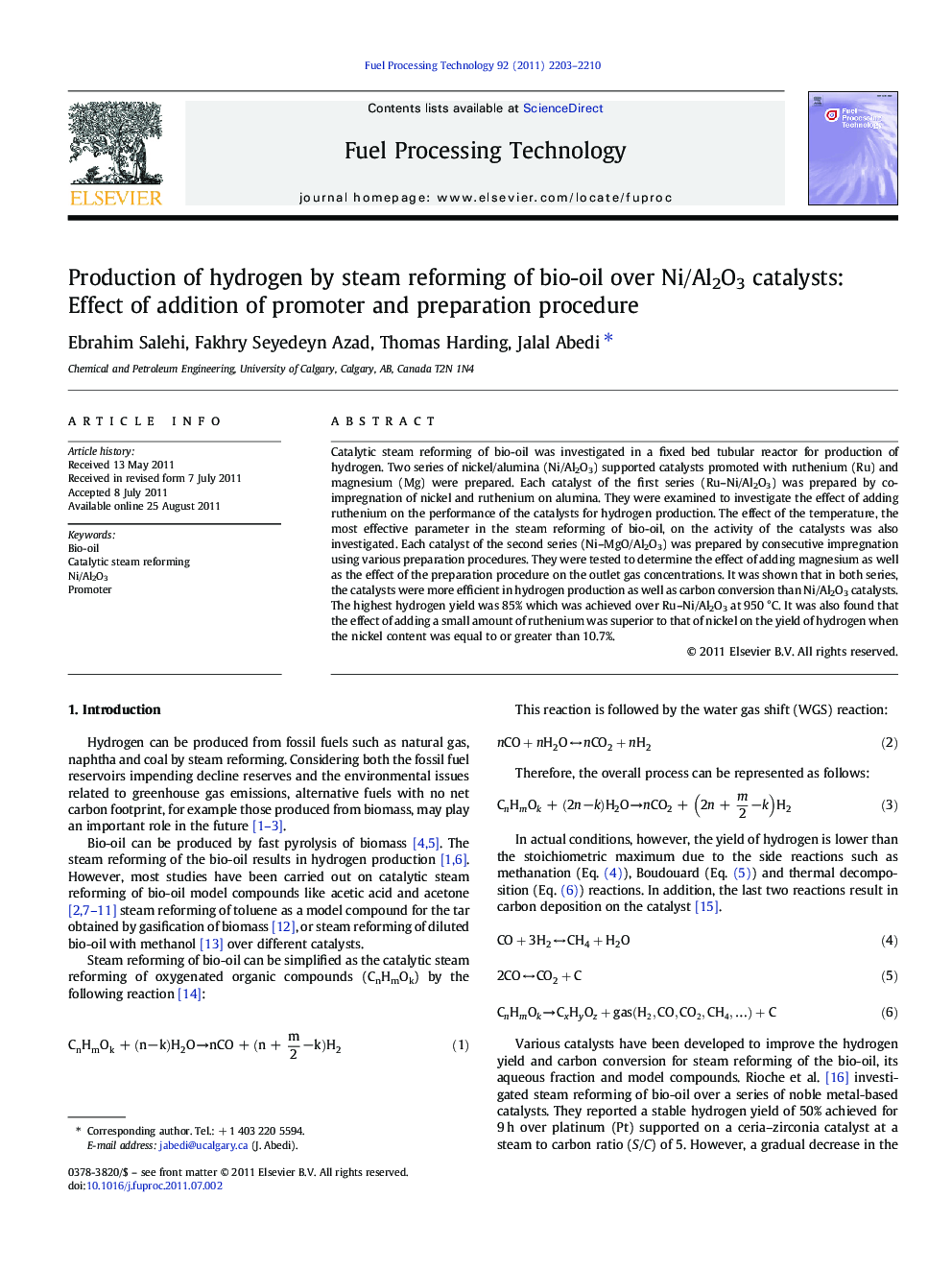| Article ID | Journal | Published Year | Pages | File Type |
|---|---|---|---|---|
| 210507 | Fuel Processing Technology | 2011 | 8 Pages |
Catalytic steam reforming of bio-oil was investigated in a fixed bed tubular reactor for production of hydrogen. Two series of nickel/alumina (Ni/Al2O3) supported catalysts promoted with ruthenium (Ru) and magnesium (Mg) were prepared. Each catalyst of the first series (Ru–Ni/Al2O3) was prepared by co-impregnation of nickel and ruthenium on alumina. They were examined to investigate the effect of adding ruthenium on the performance of the catalysts for hydrogen production. The effect of the temperature, the most effective parameter in the steam reforming of bio-oil, on the activity of the catalysts was also investigated. Each catalyst of the second series (Ni–MgO/Al2O3) was prepared by consecutive impregnation using various preparation procedures. They were tested to determine the effect of adding magnesium as well as the effect of the preparation procedure on the outlet gas concentrations. It was shown that in both series, the catalysts were more efficient in hydrogen production as well as carbon conversion than Ni/Al2O3 catalysts. The highest hydrogen yield was 85% which was achieved over Ru–Ni/Al2O3 at 950 °C. It was also found that the effect of adding a small amount of ruthenium was superior to that of nickel on the yield of hydrogen when the nickel content was equal to or greater than 10.7%.
► Ni/Al2O3 catalysts are active for H2 production via steam reforming of bio-oil. ► The activity of the catalysts was increased by adding Ru or MgO to the catalyst. ► The effect of the addition of MgO on H2 yield was much less than that of Ru. ► The maximum hydrogen yield was achieved over the Ru–Ni(10.7%)/Al2O3 at 950 °C. ► Adding Ru had large effect on H2 yield and C conversion at lower temperatures.
